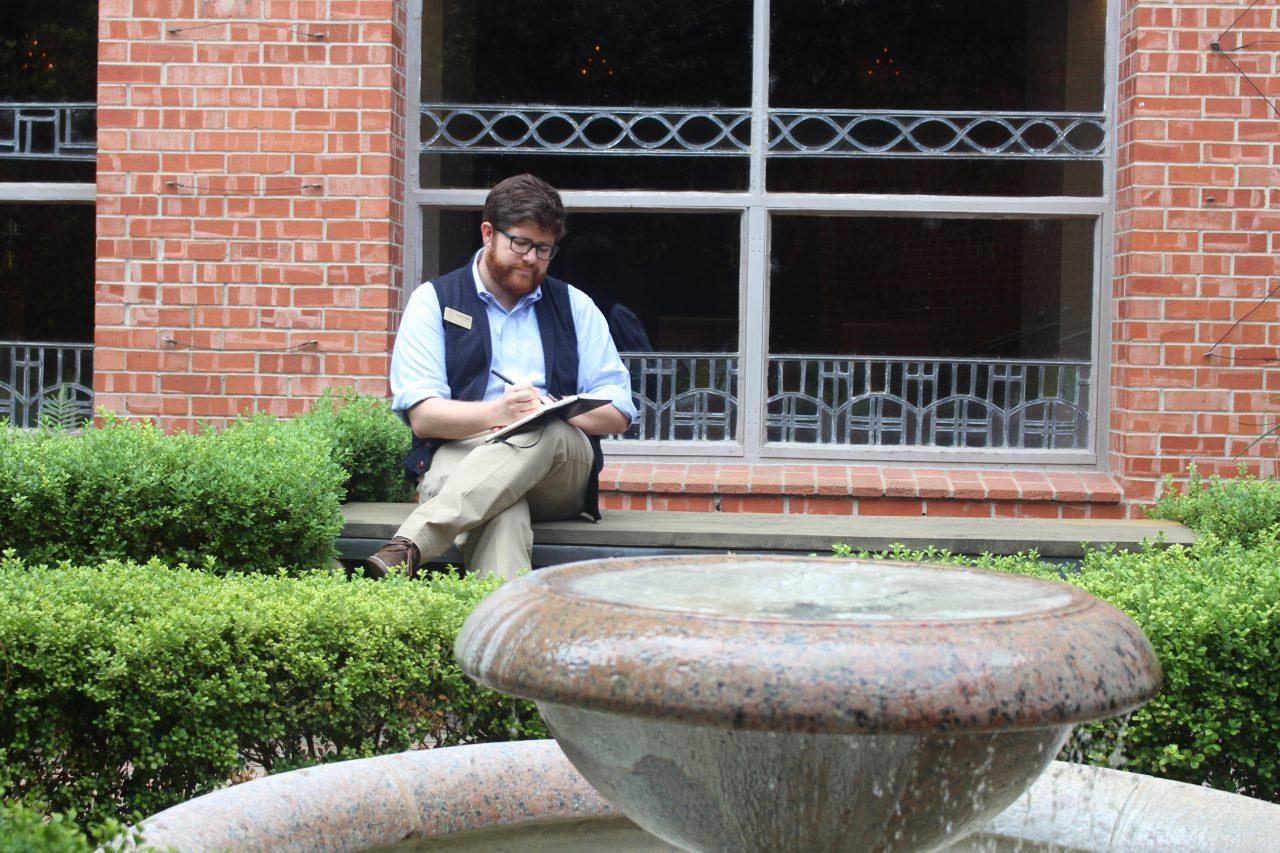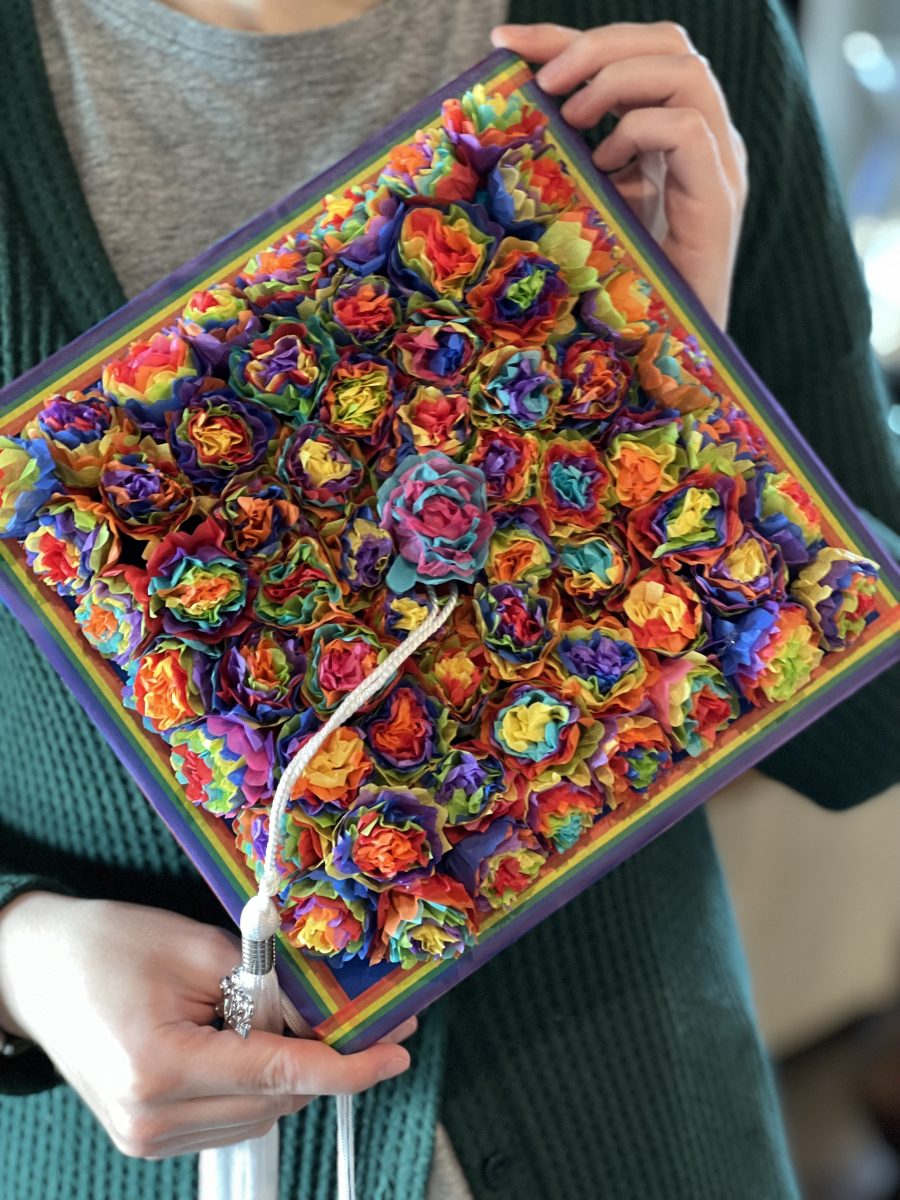Photo by Mona Mirpour
What are your spiritual practices? What are the intentional or unintentional rituals that you’ve built into your days? Do you use the same coffee mug every morning? Is there a person in your life who holds you accountable to your commitments? Is there a prayer that you always pray when things go wrong?
When we think about health and wellness, our spiritual wellness is a part of that journey. There are a number of ways to explore spiritual wellness, but to start, I invite you to think about some spiritual practices that you could add to your spiritual toolbox.
In her powerful book “All About Love: New Visions,” activist, womanist and professor bell hooks challenges her readers with the claim that “a commitment to a spiritual life requires us to do more than read a good book or go on a restful retreat. It requires conscious practice, a willingness to unite the way we think with the way we act. Spiritual life is first and foremost about commitment to a way of thinking and behaving that honors principles of inter-being and interconnectedness.” If you’re not sure where to start, here is a sampling of both solitary and collective practices that might spark your imagination for ways we can continue cultivating an interconnectedness within and without.
Solitary Practices
- Find a sacred space
Find or make a space you can go to be alone, that helps you feel rooted, where you can feel free to simply be. This could be the Chapel, the meditation garden, the Coates Center second floor Sacred Space, a patch of grass under a tree or a quiet nook only you know about. No matter where it is, find a place that you can carve out for yourself — to be alone, to be with a close friend, to be with God. - Take time to be, meditate or pray
Consider taking 15 minutes a day to literally do nothing, as a reminder to yourself that your value is not in what you produce. If doing nothing is too much of a stretch, seek out a guided meditation or a prayer practice such as the Ignatian Examen. - Take note of awe
Next time you come across something lovely that catches your attention, stop and take 30 seconds to appreciate it. Taking note of even brief moments of awe can help break us out of the ways we can sometimes drift through a day. - Develop a daily ritual
Think about one way you want to start or end every day. Perhaps there is a piece of scripture or mantra that you recite when you wake up, or perhaps it is a time of journaling you do every night before you go to bed. Create an anchor point that you look forward to in your daily routine.
Collective Practices
- Engage in service
Service can take on many forms, be it through TUVAC or simply doing something kind for someone who lives in your hall. However, intentionally giving up your time for someone else can help reorient the way you engage in this community. - Find a spiritual mentor
Identify someone whose way of living out their faith, their spiritual practice or their way of being in the world inspires you. Ask them to get coffee, take a walk — ask them about their journey, and let them be a sounding board for you. - Practice truth-telling, confession
Find a confidant who you can be completely honest with, someone that can help hold the parts of your story you would rather not share. Take time every so often to check in with them and share honestly about where you have messed up and where you’ve seen yourself grow and change. - Find reasons to celebrate
Find a reason to gather others together and celebrate. Perhaps it is an actual feast day, holiday or festival, or perhaps it is in honor of nothing in particular. Seek to build in regular times of healthy revelry, marking time as something special, that invites you out of the ordinary.
A lot more could (and probably should) be said about each one of these practices, but I hope that these seeds of ideas might grow in their own unique ways in your life. And as always, my door is open! I would be happy to find a time to chat and explore some of these themes more. If that would be helpful to you, you can book an appointment at tuchaplain.youcanbook.me.







